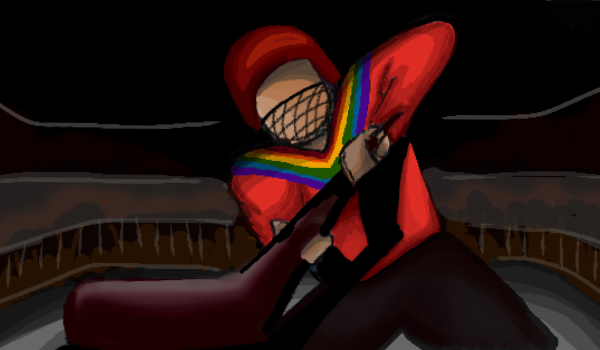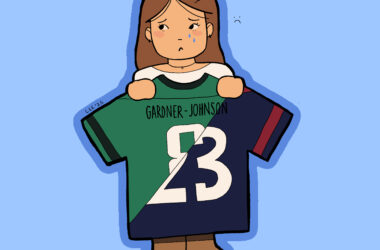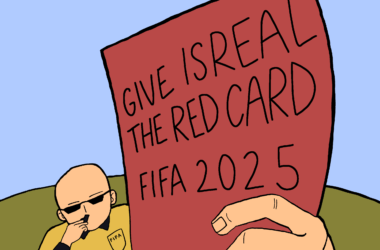Pride night at hockey games always presents itself as somewhat of an oxymoron. Like all major men’s professional sports leagues, homophobia courses through the veins of hockey from youth leagues all the way up to the National Hockey League (NHL). So often, players, coaches, and analysts not only fail as allies, but actively stand against any progress in the direction of the NHL’s “Hockey is for Everyone” initiative, leaving fans with the question: Why does the NHL keep trying?
On Jan. 17, the Philadelphia Flyers were set to host their annual Pride Night. The Flyers marketed the event promising fans “special guests, merchandise, and more,” but as players went out for their pre-game skate donning Pride-themed warm-up jerseys and sticks with rainbow tape, someone was missing—Ivan Provorov.
As hockey Twitter spiralled over hypotheticals that could have led Provorov to miss warm-up, they were surprised to see him starting right back on defence when the puck drop came around. Was he getting his ankle taped up? Did he have a stomachache? Was there something wrong with his equipment? As the game went on, reports explaining the reason behind Provorov’s absence began to trickle out: He was boycotting the team’s Pride initiatives.
In his post-game media availability, Provorov was curt with the media. He cited his Russian-Orthodox religious beliefs and stated that he “respected everyone’s choices.” As if calling queerness a “choice” wasn’t enough of a blow to a night that was meant to mark progress within the NHL, Flyers’ coach John Tortorella was sure to make his support for Provorov clear. Tortorella went so far as to say he believed Provorov did nothing wrong and he respected that he was “true to himself.”
The Flyers provided the league with a benchmark. It is now acceptable to opt out of Pride night. In response to Provorov and Tortorella’s actions, the NHL put out a statement reiterating their stance that clubs “decide whom to celebrate, when and how” and that players “are free to decide which initiatives to support.” While recognizing the legal jargon and inability of the league to take action on Provorov directly, the NHL’s spineless statement sent the invitation for other teams and players to echo Provorov’s homophobia.
So how does the rest of the league respond? Do they come out in aggressive support of the 2SLGBTQIA+ community? Do they stay silent? For the New York Rangers, they seemingly believed that Provorov had it right. Despite promoting a Pride Night on Jan. 28 that would include Pride-themed warm-up jerseys and sticks, the Rangers did not wear either. The decision not only shocked fans at the arena who had bought tickets and arrived early under the impression they would see some form of allyship from the players, but it also shocked the co-chair of NYC Pride, Andre Thomas, who had been brought in for the pre-game ceremonial puck drop.
Over a week later, the Rangers still have not provided an explanation for why they did not wear the jerseys.
Although the Rangers made a donation to the Ali Forney Center on Pride Night and rainbow lights lit up Madison Square Garden, the lack of player participation left a bad taste in many fans’ mouths.
The NHL’s institutional protection of homophobia is made clear as day by the past three weeks of failure. In tandem with the All-Star game taking place in Florida, it’s easy to see where the league’s priorities stand. NHL commissioner Gary Bettman’s silence in response to Governor Ron DeSantis’ attempt and eventual success in shutting down the leagues’ diversity and inclusion initiatives in the state is disappointing yet unsurprising.
Hockey is certainly better off now than it was a decade ago. Bright spots emerged from the All-Star festivities, with the Gay Men’s Chorus of South Florida singing the national anthem at the Skill Competition and openly queer athletes Emily Clark, Alex Carpenter, and Hilary Knight participating in the event. That said, it’s hard to see the NHL’s attempts at inclusivity as anything more than performative moneymakers desperate to grow the league’s dying fanbase. The NHL needs to protect itself against a regression into the culture wars that characterize America or else they’ll end up right back where they started.









